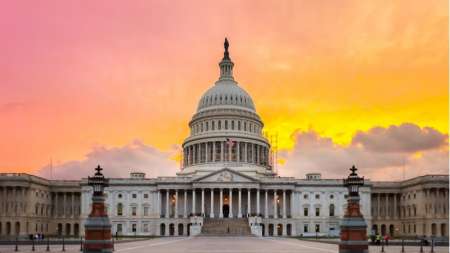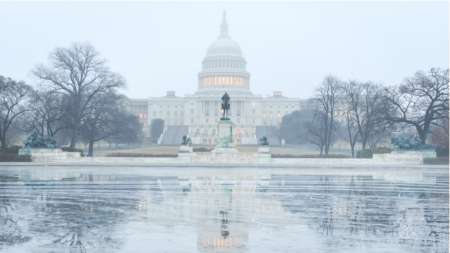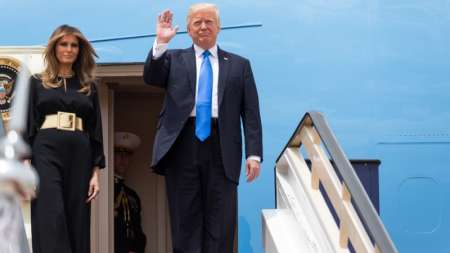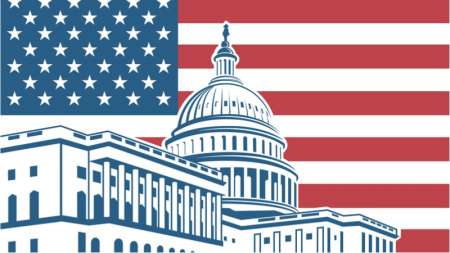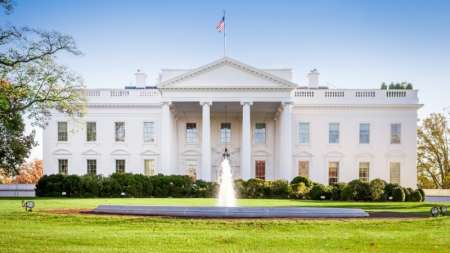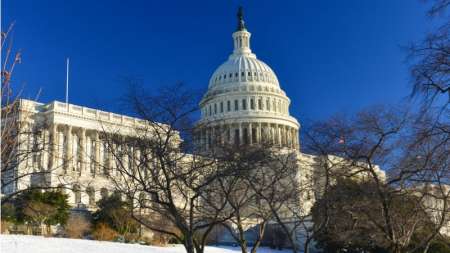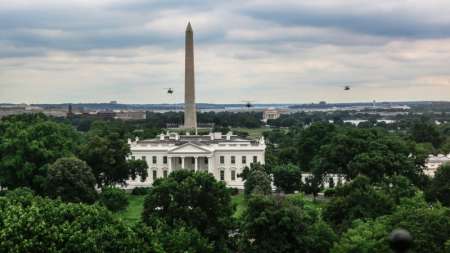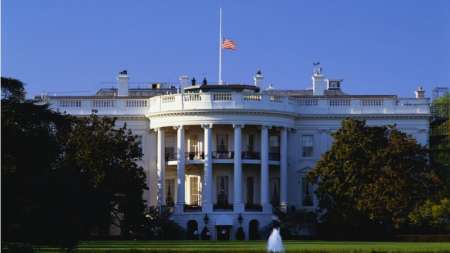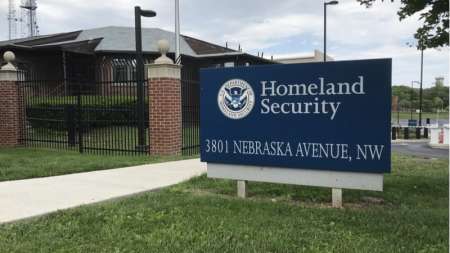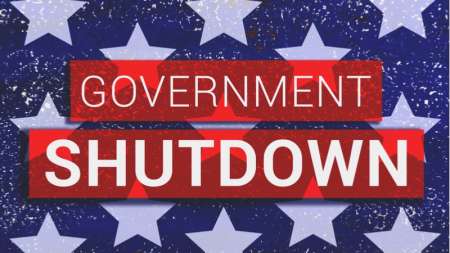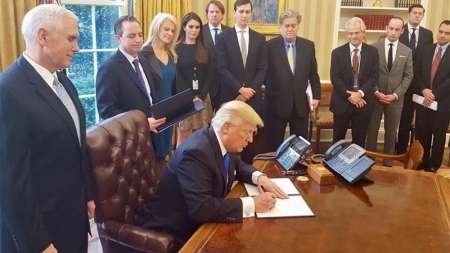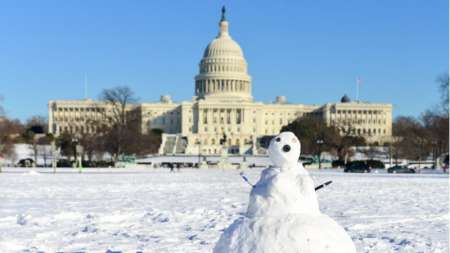Republican and Democratic legislators were expected to meet again today in an attempt to reach agreement on border security issues and avoid another partial Federal government shutdown, following news that negotiations by a House-Senate conference committee stalled on related immigration issues this weekend. […]
President Trump’s executive order on artificial intelligence (AI) announced by the White House today focuses on prioritizing Federal government investments in AI-driven projects, and development by Federal agencies of research and development budgets for AI that will support their core missions. […]
Senior House and Senate leaders from both sides of the aisle expect members of a conference committee working on border security funding issues to reach an agreement soon on a funding package that will prevent another partial Federal government shutdown before funding for some agencies – including the Department of Homeland Security – runs out on Feb. 15. […]
President Trump today met with Sen. Richard Shelby, R-Ala.–chairman of the Senate Appropriations Committee and a member of a House-Senate conference committee coming up with recommendations for border security funding–and outlined his demands for a funding deal as the Feb. 15 deadline for another partial Federal government shutdown looms. […]
The government funding bill is still being debated among members of Congress, and Democratic leaders have suggested Friday as a benchmark to get an agreement in place. […]
While President Trump made only an indirect mention of the importance of emerging technologies in his State of the Union speech last night, the White House’s Office of Science and Technology Policy (OSTP) was busy tying the President’s call for government investment in “cutting edge industries” to emerging technology sectors including quantum computing, artificial intelligence (AI), and 5G wireless services. […]
On Tuesday, President Trump continued to push his desire for a border wall on the U.S.- Mexico border, even suggesting a “human wall” to prevent immigrants from illegally entering the U.S. President Trump will give his State of the Union address tonight where he could talk about border security at length. […]
Senate Democrats on Monday introduced a bill that would prevent President Trump from using money already appropriated for the U.S. military to help build a border wall in the event that the President declares a national emergency to accomplish that purpose. […]
The White House announced Saturday that it has hired Roger Stone (not the one you’re thinking of) to serve as the deputy assistant to the President and director of White House IT. […]
President Trump hinted today at using emergency powers to begin construction of a wall at the U.S.-Mexico border, and suggested that an announcement to that effect may be part of his State of the Union speech next Tuesday. […]
The prospects for an amicable legislative solution to President Trump’s demand for border wall funding appeared to take a turn for the worse today as House Speaker Nancy Pelosi, D-Calif., predicted there will be no such funding coming from a House-Senate conference committee looking at the issue, while President Trump indicated that legislation to fully fund Federal government operations won’t “work” unless the border wall funding he wants is included. […]
The 17 members of Congress whose job it is to try to avert another partial Federal government shutdown held their first official meeting today, and two of the Democratic House members that are part of the House-Senate conference committee created to resolve differences on border security issues described the initial negotiating session as both cordial and constructive. […]
A day after the Federal government fully reopened and less than three weeks after it faces another potential funding crisis, a group of Senate Democrats has been pushing to get back pay to low-wage government contractors who missed paychecks during the partial lapse in appropriations. […]
The post-government shutdown thaw produced its first green shoots today, as Federal employees returned to work and House Speaker Nancy Pelosi, D-Calif., invited President Trump to deliver the State of the Union address in the House chambers on Feb. 5. […]
The Office of Personnel Management (OPM) on Sunday posted back-to-work guidance for Federal agencies and employees that were furloughed and/or required to work without pay during the partial government shutdown that began Dec. 22 and ended late Friday with congressional and White House approval of a continuing resolution to restart shuttered operations through Feb. 15. […]
The House and Senate late today voted to fully reopen the Federal government until Feb. 15, ending a 35-day shutdown that began before Christmas. […]
President Trump today endorsed a three-week extension of appropriations for Federal agencies that have been impacted by the partial government shutdown that began on Dec. 22. Assuming that legislation to that effect is quickly approved by the House and Senate, the partial shutdown would come to an end – for now. […]
On the heels of the Senate voting down both competing Republican and Democrat funding bills to reopen the partially-closed Federal government, President Trump today suggested that he might be willing to accept a smaller “down payment” on funding the southern border wall. […]
The tit-for-tat between President Trump and House Speaker Nancy Pelosi, D-Calif., continued to rage Wednesday, resulting in the President saying he is planning for an another location to deliver his State of the Union address which is traditionally hosted by the House of Representatives with a scheduled date of Jan. 29. […]
The Department of Homeland Security (DHS) issued an emergency order on Tuesday afternoon in an effort to mitigate Domain Name System (DNS) infrastructure tampering. DHS and the Cybersecurity and Infrastructure Security Agency (CISA) have been tracking incidents of tampering where multiple executive branch agency domains were impacted. […]
Republican and Democratic Senate leaders announced an agreement late today under which the Senate will vote Thursday on two pieces of legislation that would clear the way to fully fund government operations and at least temporarily end the partial Federal government shutdown, which entered its 31st day today. Whether either of those pieces of legislation […]
On Friday, the Senate blocked a bill that would open the Department of Homeland Security (DHS) through Feb. 8. […]
Reps. Dutch Ruppersberger, D-Md.; Jim Himes, D-Conn.; Will Hurd, R-Texas; and Mike Conaway, R-Texas, have introduced legislation to create an Office of Critical Technologies & Security at the White House to coordinate action across Federal agencies and develop a “whole of government” strategy to combat theft of U.S. technologies by state actors including China, and to reduce risks to “critical supply chains.” This bill is a companion bill to one that was introduced in the Senate on Jan. 4 by Sens. Mark Warner, D-Va., and Marco Rubio, R-Fla. […]
Congress and the White House seemed no closer today to reaching an agreement to end the partial Federal government shutdown, as the public interactions between the two mainly featured an apparently tit-for-tat exchange between President Trump and House Speaker Nancy Pelosi, D-Calif., over the latter’s ability to use U.S. military transportation for an overseas trip. […]
On Wednesday, President Trump signed into law a bill that would guarantee back-pay to Federal workers who have been furloughed during the partial government shutdown. […]
House Speaker Nancy Pelosi, D-Calif., updated her previous invitation for President Trump to deliver the annual State of the Union address to Congress today, suggesting that he should consider postponing the Jan. 29 speech or submitting it in writing until the Federal government is fully reopened. […]
As the partial government shutdown reached day 25, the latest continuing resolution (CR) aimed at reopening the partially-shuttered Federal government until Feb. 1 failed in the House, today. […]
On Monday evening, President Trump signed the Open, Public, Electronic, and Necessary (OPEN) Government Data Act into law, setting the requirement for all government agencies to make data open and machine-readable by default. […]
The partial Federal government shutdown continued its record-setting pace today as negotiations between the White House and Congress remained stalled and Mother Nature had a hand in preventing activity on Capitol Hill from progressing further. […]
President Trump held off today on his threat to declare a national emergency to get border wall funding, and the House of Representatives passed another separate funding bill to reopen the Department of Interior, Environmental Protection Agency, and the Forest Service, with little chance that measure will receive Senate or White House approval. […]

